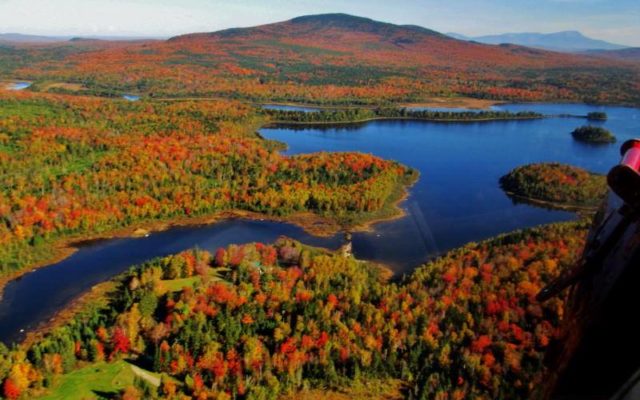
For some, the promise of jobs vanishes after developer abandons Plum Creek plan
The people who are trying to develop the Moosehead Lake region into more of a tourism hub have spent years waiting for timber giant Weyerhaeuser to deliver on its plans to build two resorts, 1,000 second-home lots, a golf course and other attractions in the area.
Now, those people have had mixed reactions to the news that Weyerhaeuser is effectively withdrawing those plans. In September, the company filed a petition with state regulators to undo the controversial zoning plan that would have allowed it to carry out that development of 17,000 acres. At the time, it said the lasting impacts of the 2008-09 recession had made it impractical to continue with the effort.
Some are dismayed that the long-dangling promise of new jobs and economic activity has not materialized in the Moosehead Lake region.
Others said that the change of plans by Weyerhaeuser — which has purchased the company that first launched the controversial project in 2005, Plum Creek Timber Co. — is unfortunate, but that it won’t hold back other ongoing development initiatives that have already started independently of the timber company.
Sally Johnson, who owns Moosehead Hills Cabins in Greenville with her husband, noted that the community has managed to raise about $400,000 in recent years to help install directional signs all around Moosehead Lake. As part of another local initiative, the Moosehead Lake Region Economic Development Corporation is planning to buy almost an acre in downtown Greenville and make it into a waterfront park.
“The original Plum Creek plan was approved so many years ago,” Johnson said. “Nothing in terms of the resort development has happened, so I feel like from our point of view as local business owners and community members, we’re not really seeing a difference.” While a large resort “would help our economy,” Johnson added, “I’m not sure that having a lot more second homes makes a difference.”
Bobby Gilbert, who is in the process of buying Jamieson’s Market in Greenville from his father, was more pessimistic about the implications of Weyerhaeuser’s decision. While the store does brisk business in the summer months, Gilbert said that it would have an easier time surviving the rest of the year if it could count on the activity from a large resort center.
“We do not have the numbers to support a small business,” he said.
Gilbert, 33, said that it’s hard for people in his peer group to stay in the region when there are few job opportunities. For those reasons, he and many others hope that the ongoing efforts to revive Big Squaw Mountain ski area will pan out and start drawing larger numbers of visitors to Greenville during the winter.
Besides the 17,000 acres that Weyerhaeuser had intended to develop into a tourism hub, it has also placed far more land that it owns — 363,000 acres — into permanent conservation. A spokesman for the company did not respond to a request for comment on Wednesday.
Some who are trying to redevelop the region noted that it still would benefit from the permanent conservation of all that land.
It will be a lasting asset to the region as it tries to spur economic development from tourism and other industries, according to Karin Tilberg, a board member of the Moosehead Lake Region Economic Development Corporation and executive director of the Forest Society of Maine, the group that holds the conservation easement for the land.
Weyerhaeuser can still harvest wood from the land, and the land also includes three areas on the west side of Moosehead Lake where wind power development could be permitted. But the large stretch of forest must otherwise remain undeveloped and open for recreation under the legally binding conservation easement.
“Let’s say you sell wood products,” Tilberg said. “You know a lot of land in the area will be managed for forestry. If you are a guide, you know you can go on those lands and they won’t get posted. If you want to start an outdoor recreation clothing business, you have a pretty good sense that people are going to hunt and fish and snowmobile and ATV in the area, and it’s going to stay pretty much like it looks right now.”